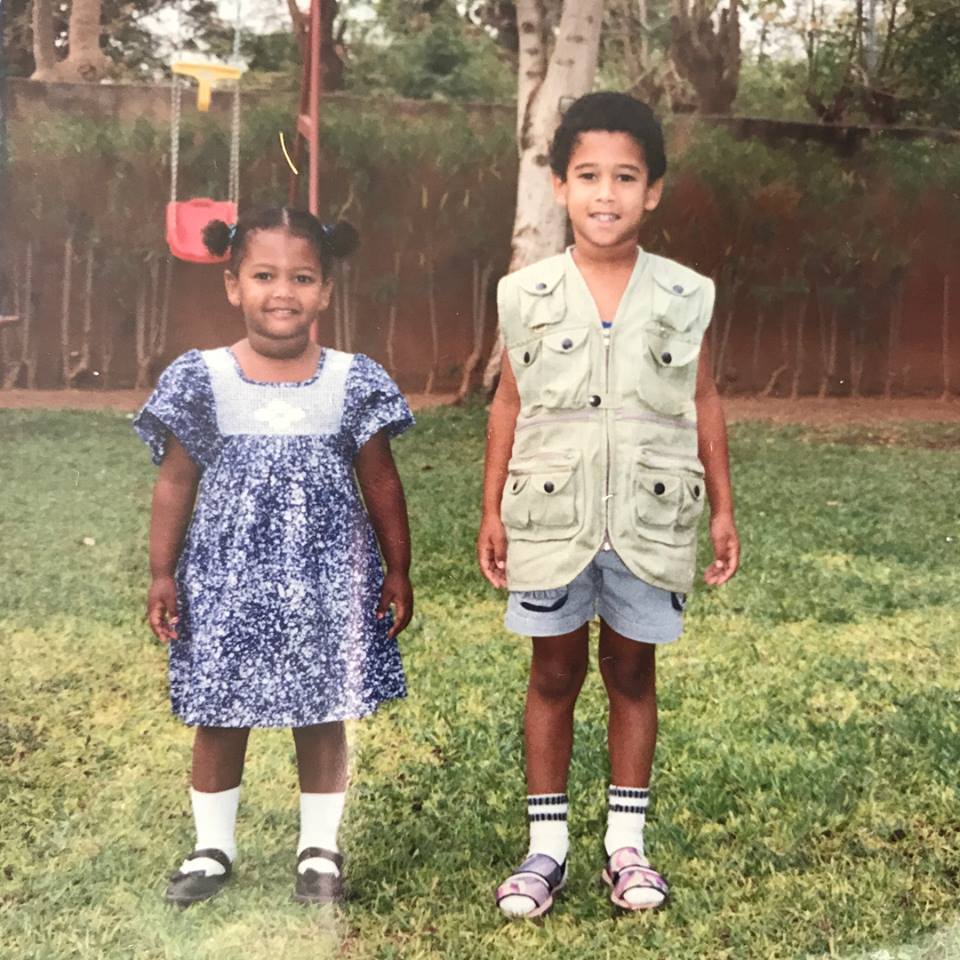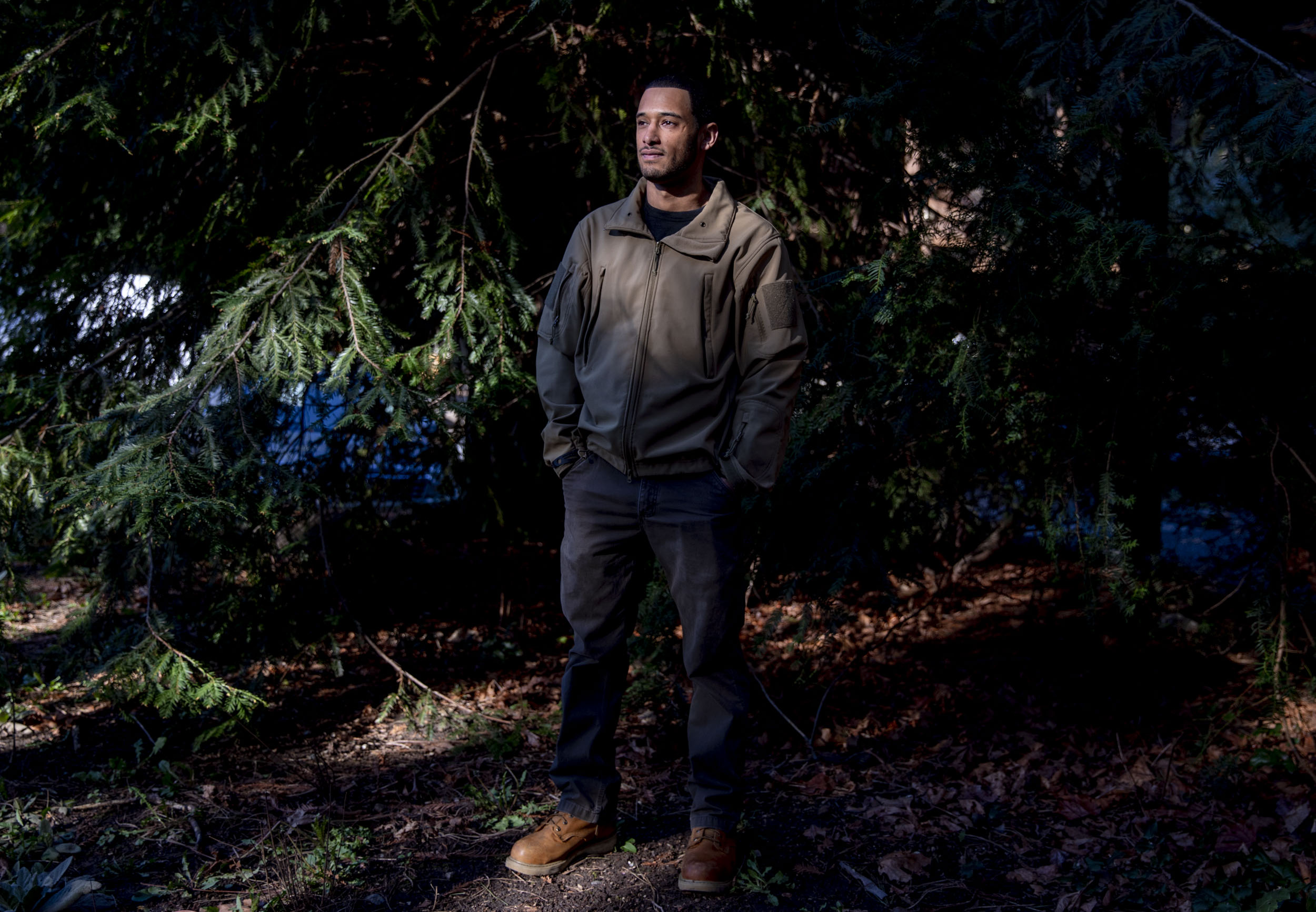My adviser, Heather Williams, was instrumental in helping me learn to be creative and think on my feet as a scientist. I was able to do field work with her for three years. It was just great. She knew that I was somewhat self-conscious of my academic capabilities and she said, “Here in the field, toughness and other things like that are what get you in; you’re a football player, and this is where you should shine.” So I really devoted myself to field work.
I learned that your GPA or GRE score won’t define your capabilities as a grad student or as a researcher. Learning that lesson was important because [in addition], there [already] aren’t that many people who look like me in the field. And so to know that intelligence can also be defined in a number of ways was heartening.

I’ve always been a little bit more interested in the big, cuddly, fuzzy things — but I did bird research [at Williams that] taught me a lot about difficult field work. You’re in remote locations, working long hours and having to pay attention while you’re collecting data. I also learned to work in a 50-meter-by-50-meter square for 12 straight hours, looking at birds, and not go crazy.
When I graduated, I applied to a bunch of grad programs and didn’t get into any; and then applied to a few jobs, and nothing landed there. I moved home and contacted the local dive shop that certified me at 12. They said, “We could use someone to teach dive classes, and we have trips that go down to the Caribbean. Do you think you’d be willing to get your dive masters this weekend. We can help you do that at cost?” I was sold. I worked for them for a while. And then I volunteered at the University of Minnesota Lion Lab, going through camera trap videos and identifying species. Someone at that lab had done work on a grizzly bear project in Montana and put in a good word for me. I did that, and then a Fulbright in Malawi.
I grew up listening to stories that my mom told me about the gorillas in Rwanda and the Rwandan genocide — a lot of people killing people, a lot of people killing wildlife. I thought about that when looking into grad schools. I thought, there’s got to be a way to create more balance as far as people being able to live with people, and with wildlife. I think that was a sort of childish sentiment at the time, but I looked at labs that explored predator-prey relationships with large carnivores and Aaron Wirsing’s predator ecology lab came up pretty quickly. [Washington] is a state that is by and large proud of its wildlife and eager to find ways to protect it and manage it effectively. I felt like Washington was the place to be.
There really aren’t that many African Americans doing fieldwork here in Western Washington, especially the kind of fieldwork I do. Most of my fieldwork occurs in managed forests — there’s mostly foresters and some Fish and Wildlife personnel. I love seeing them, and them me. They’re the ones who’ve helped me with my research. My guiding experienced helped me a bit with fieldwork, but by far, I’ve learned more from my adviser, Brian Kertson, who’s a carnivore scientist with WDFW [Washington Department of Fish and Wildlife]. For my whole first year in the field, we’d go out together every day and I got to watch what he did up close.
For my master’s degree, I looked at how urbanization impacts cougar foraging ecology. What is the probability that a cougar takes a domestic animal as urbanization increases? The truth is, cougars do eat urban prey like raccoons and coyotes, but they just don’t kill a lot of domestic animals. We found the more development you have, the greater chances that cougars are going to kill something that you don’t want them to kill — but almost 80 percent of their diet is deer. We were also able to demonstrate that those areas where cougars kill are exurban landscapes, and involve just a few cats. The behavior that we’re really worried about cougars exhibiting is unlikely in most areas.

Right now, I’m looking into the bear-cougar relationship in light of urbanization, because bears sometimes scavenge cougar kills. I’m curious as to whether urbanization decouples that relationship and instead bears are foraging on human resources more.
Cougar attacks on humans are rare. When they happen, it’s often because they misidentify the human as prey or there’s maybe something wrong with the cat — they’re malnourished or something like that. Unfortunately, you need collared animals to get data like this, which means that it takes years of work and a lot of community support and patience.
I’m sure that there’s been many times where I’m hiking in the woods where cougars have been either aware of my presence or have left because of it. I guess there’s another level of respect there, knowing that they are predators.
